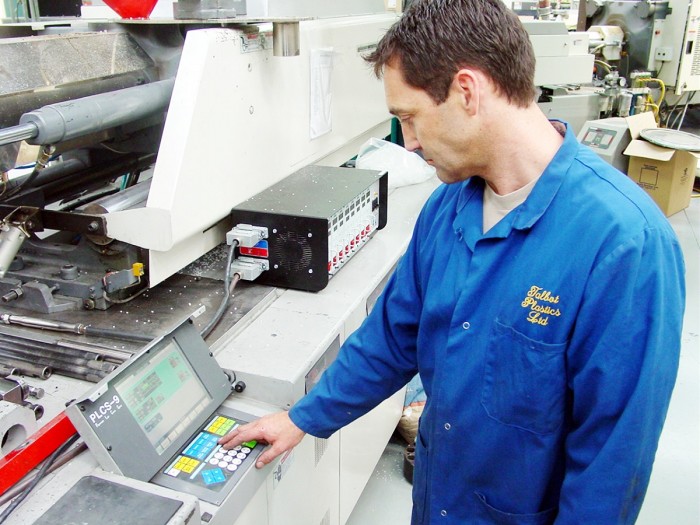Plastics Technician
Kaihangarau Kirihou
Alternative titles for this job
Plastics technicians set up, adjust, maintain and repair machines that manufacture plastic products.
Pay
Plastics technicians with less than four years’ experience usually earn
$23-$25 per hour
Plastics technicians with four or more years' experience usually earn
$25-$34 per hour
Source: Competenz, 2017.
Job opportunities
Pay
Pay for plastics technicians varies depending on experience:
- Apprentices usually earn between minimum training wage and minimum wage.
- Plastics technicians with one to four years' experience usually earn $23 to $25 an hour.
- Plastics technicians with four or more years' experience can earn from $25 to $34 an hour.
Source: Competenz, 2017.
- PAYE.net.nz website - use this calculator to convert pay and salary information
- Employment New Zealand website - information about minimum pay rates
(This information is a guide only. Find out more about the sources of our pay information)
What you will do
Plastics technicians may do some or all of the following:
- design and make tools and machinery
- set up and calibrate machines
- set amount of plastics produced each hour
- operate and monitor machines
- test machines and check the quality of plastic products
- repair and maintain tools and machines
- write operating manuals and flow charts
- train staff on how to use tools and machines.
Skills and knowledge
Plastics technicians need to have knowledge of:
- how plastics react to different heats and pressures
- how to solve technical problems
- how to operate, maintain and repair tools and machinery
- processes used to make plastic products, and the ability to diagnose production problems
- product standards and safety regulations
- different chemicals, compounds and metals
- heats and speeds needed for mechanical tasks such as welding.
Working conditions
Plastics technicians:
- either work shifts or regular business hours. They may be required to work longer hours or weekends to meet deadlines
- work in factories, processing plants and workshops
- may work in smelly, noisy and dusty conditions. They may also work with toxic materials, which require the use of safety equipment
- may travel locally to clients' workplaces to install or repair products.
What's the job really like?

Travis Peek
Plastics Engineer
More than making coathangers
When Travis Peek did work experience at a plastics company it opened his eyes to the opportunities available in the industry.
"I was in Sixth Form, wondering what to do next. I wanted to do something practical and hands-on involving machinery, but I had never really thought about working in plastics. I just thought it would be making things like coathangers or something like that, but I was wrong. When I got there I was just fascinated with all the different things produced and how they were made."
Regrets not taking maths and chemistry seriously
On reflection, Travis says he would have worked harder at maths and chemistry at school if he'd known what lay ahead. "There's quite a bit of maths involved in the job, like working on velocities, percentages and pressures. Chemistry is useful because it helps with understanding the plastics materials and how they function. For example, even the temperature outside the building can affect how the plastics work in the machinery inside here.
"If you want to get into a growing industry I think plastics would be a good one. It's quite unique and constantly developing."
Plastics technician video
Robyn Nicholson talks about how to become a plastics moulder engineer – 2:24 mins. (Video courtesy of Competenz)
I was home-schooled and so I didn't have any qualifications but I knew that I wanted to get into something practical.
Because I had no credits from NCEA from school I took the initiative to do a pre-trade course in mechanical engineering. From there I approached Competenz.
Competenz helped me, well introduced me to the plastics industry. Profile
Polymers employed me as an apprentice.
I chose this course because I really like the hands-on aspect of it. I don't mind getting my hands dirty and I like to use my creativity and my attention to detail.
Plastics is quite a specialised field but I know that I'll pretty much be guaranteed a job here once I finish my apprenticeship. I may also get the chance to travel overseas to test new equipment and set up new machines.
The engineering skills that I have learnt from my mentor Pete could definitely take me down an engineering path in the future.
The thing that I most look forward to on waking up, coming to work – I enjoy seeing the satisfaction on a customer's face when we know that we've exceeded their expectations from the product we delivered them.
This apprenticeship suits anyone with an eye for detail who doesn't mind getting dirty and is willing to learn.
I didn't really know what to expect when I started this apprenticeship, but it has really taught me so much in a real working environment, as well as getting paid at the same time.
Competenz have really helped me, my account managers have always been there to support me – they always encourage me to do my best.
In this apprenticeship there’s great opportunities – huge potential and the future looks really bright.
I'm so glad I chose this apprenticeship! Everything starts with a dream.
Entry requirements
To become a plastics technician, you need to complete an apprenticeship and gain a New Zealand Certificate in Plastics Processing Technology (Level 4).
Secondary education
NCEA Level 1 is recommended. Useful subjects include chemistry, construction and mechanical technologies, maths, processing technologies and physics.
Personal requirements
Plastics technicians need to be:
- good at solving problems
- accurate, with an eye for detail
- skilled in drawing up plans and instructions
- accurate and methodical
- able to work independently and in a team
- responsible and safety-conscious.
Useful experience
Useful experience for plastics technicians includes:
- work with basic engineering equipment such as welders, lathes and power tools
- any work in the plastics, rubber or composites industry
- work as a mechanical engineer
- work in other factory jobs, particularly shift work.
Physical requirements
Plastics technicians need to be fit and healthy as the job involves some lifting, and they spend long periods on their feet.
Find out more about training
- Competenz
- 0800 526 1800 - info@competenz.org.nz - www.competenz.org.nz
- Composites Association of New Zealand
- (09) 376 7732 - caroline@composites.org.nz - www.composites.org.nz
- Plastics New Zealand
- (09) 255 5662 - www.plastics.org.nz
What are the chances of getting a job?
Demand for plastics technicians high due to shortage
Demand for plastics technicians is high due to:
- a shortage of qualified, experienced workers
- a shortage of technicians who know how to work with new energy-efficient processes
- high demand for products that contain plastics, such as mobile phones and medical equipment
- more online retail and global trade increasing demand for plastic packaging
- new factories opening in New Zealand to recycle plastics that can no longer be sent to China to recycle.
Plastics technician, plastics engineer and the related job of fibre composite technician appear on Immigration New Zealand's regional skill shortage list. This means the Government is actively encouraging skilled plastics technicians from overseas to work in New Zealand.
According to the Census, 303 plastics technicians worked in New Zealand in 2018.
Types of employers varied
Plastics technicians work for a range of employers including small- to medium-sized national companies, and large multi-national corporations.
Sources
- Competenz website, accessed September 2017, (www.competenz.org.nz).
- Immigration New Zealand, 'Regional Skill Shortage List', 27 May 2019, (www.immigration.govt.nz).
- Ministry of Business, Innovation and Employment, '2006-2014 Occupation Data' (prepared for Careers New Zealand), 2015.
- Ministry of Business, Innovation and Employment, 'Jobs Online Monthly Report – August 2017', (www.mbie.govt.nz).
- Packaging Council of New Zealand Inc, 'Packaging 2016', accessed September 2017, (www.packaging.org.nz).
- Plastics NZ, 'Careers in Plastics', accessed September 2017, (www.plastics.org.nz).
- Plastics NZ, 'General Statistics', accessed September 2017, (www.plastics.org.nz).
- Reidy, M, 'NZ Plastics Manufacturing Site for Sale, but no Sign of Slowing Down', 1 August 2017, (www.stuff.co.nz).
- Statistics New Zealand, 'Economic Survey of Manufacturing: June 2017 Quarter', 8 September 2017, (www.stats.govt.nz).
- Stats NZ, '2018 Census Data', 2019.
- Tso, M, 'NZ's First PET Plastic Processing Plant Opens', 16 August 2017, (www.stuff.co.nz).
(This information is a guide only. Find out more about the sources of our job opportunities information)
Progression and specialisations
Plastic technicians may progress to supervisory or management roles.
Plastics technicians may specialise in:
- die setting
- machine setting
- plastic moulding
- process engineering
- product designing
- toolmaking.
Last updated 4 April 2023


